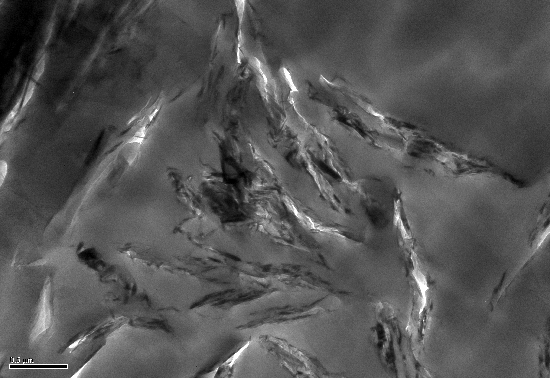Material extrusion
Material extrusion is often referred to as Fused Filament Fabrication (FFF) or Fused Deposition Modelling (FDM), which is a trademark of Stratasys. At CALM we are working with industry to develop new materials for extrusion deposition systems, evaluating performance of materials and supporting new equipment developments, providing the material-process link. We optimise processes for specific materials, helping equipment manufacturers improve their systems.
Combining the materials and equipment knowledge is essential to make the high performance parts of the future, where quality, consistency and performance are demanded. This requires a professional, thorough and collaborative approach, combining rigorous research approaches with the commercial and technical requirements of industry. CALM is partnering with the complete supply chain including selected equipment providers to help deliver the next generation of manufacturing technologies.
Research projects include:
Combining nano-particles with PAEK polymers, this project is looking to develop new bespoke lightweight multifunctional materials that can be 3D printed using powder bed fusion technology and FFF. PAEK polymers are temperature resistant, tough, and corrosion resistant. They are increasingly being used for metal replacement within aviation and military application.
Boron nitride and graphene have been selected as the nano-materials most suited for the intended applications here. These new materials will offer multifunctional capabilities including lightweighting, thermal and electro-magnetic properties. Incorporation of nanomaterials with different particle sizes and shape which will significantly affect powder flow, polymer viscosity and subsequently sintering mechanisms are very important to the success of this project.
The project will study the surface chemistry of the nanoparticles for good interface bonding with PAEK; fabrication of the composite powder (encapsulation of the nanoparticles either on the surface or within the bulk of the PAEK particles) and laser sintering of these new powders. Powder properties (bulk density, compaction, shape - roundness and circularity, aspect ratio, viscosity, surface tension) are key parameters for a good sintering process,
Funded by: Innovate UK
Partners: Qioptiq Ltd, Thales UK Ltd, Victrex Manufacturing Ltd, Hosokawa Micron Ltd, Airbus Operations Ltd, 2-DTech Ltd, Haydale Ltd

The aim of this project is to develop novel high performance, nanocomposite feedstock powder materials and filament for two processes: Laser Sintering and Fused Deposition Modelling (FDM). It will examine the potential use of inorganic fullerene-like tungsten disulfide (WS2) as nanofillers for high value, PAEK (Poly Aryl Ether Ketone) based products.
The incorporation of these nanomaterials has been shown to improve thermal, mechanical and tribological properties of various thermoplastic polymers. It reduces wear and the coefficient of friction as well as offering processability benefits with dispersion characteristics that are superior to 1D and 2D nanoparticles. They are also the best shock absorbing cage structures known to mankind and importantly, they are non-toxic and thermally stable.
Funded by: EPSRC
Partners: University of Exeter and Ulster University. Supported by Victrex Polymer Solutions, Laser Prototype Europe, Bombardier Aerospace, Daido Metals Co. Ltd.
This 7-month feasibility study proposes the modification of low cost extrusion deposition technology, commonly known as 3D Printing/FDM, to enable to freeform fabrication of high performance polymers (PolyEtherEtherKetone) reinforced with carbon nanotubes and carbon fibres. Although the additive manufacturing technologies are promising and have attracted a wide range of manufacturing sectors, the limited range of polymeric materials holds back the technology from achieving its full potential.
Polyamide 12 (PA 12) is one of the main polymers used with laser sintering and acrylonitrile butadiene styrene (ABS) for material deposition, known also as fused deposition modelling (FDM) processes. However, their low melting and glass transition temperatures make these materials unsuitable for the high end engineering applications.
PEEK polymer-based composites have more than 10 times the impact strength and damage tolerance of typical thermoset composite systems, are insoluble in all common solvents and excellent resistance to chemicals, chemically inert to water and pressurized steam at elevated temperatures, can offer up to 50% weight reduction over metals and metal alloys and a reduction in noise, vibration and harshness.
The project aims to apply the enhanced mechanical properties of the reinforced composite to define strategies for repairs of parts using the material deposition process.
Supported by: Airbus Group Ltd
Funded by: Defence Science and Technology Laboratory (DSTL)
This project is investigating the use of fibre optic sensors integrated into parts built using extrusion deposition. This has implications for replacement parts and repairs which could be performed in the field (and further applications e.g. UAVs). Sensing capabilities can be integrated into positions not normally possible, improving the quality of the parts and increasing measurement options.
The project also allows in-process monitoring during manufacture, to better understand the thermal environment. It builds on a previous CDE projects (CDE 36453) by CALM developing FDM technology for PEEK.
CDE project reference: 100404
Partners: AV Optics
Funded by: Defence, Science and Technology Laboratory (DSTL)
CALM in partnership with Bond 3D are co-funding a PhD studentship seeking to investigate polymer behaviour and performance of Poly Ether Ether Ketone (PEEK) polymers. Bond 3D is a fast growing, young and entrepreneurial company based in the Netherlands who are developing a novel, ultra-performance Free Form Fabrication (FFF) printer for printing high performance polymers such as PEEK.
CALM is pleased to provide research support for the PhD programme which will focus on understanding the polymer behaviour from molecular scale to macro-scale performance throughout the new manufacturing process. Aspects such as crystal structure, size, amorphous and crystalline behaviour, layer-to-layer bonding, degradation effects, mechanical performance and design considerations will form part of the PhD study.
Funded by: University of Exeter and Bond High Performance 3D

